The Getting Greater Manchester Active campaign has reached a broad range of people from every borough of Greater Manchester, age group, gender group, ethnic group and a relevant mix of employment backgrounds. We feel the profile of participation is broadly representative of Greater Manchester’s population and therefore a population worth listening to.
We launched the Getting Greater Manchester Active online workshop on Friday 17th of June. We invited our public database that we created in the first Taking Charge Together online workshop. We also activated networks of experts and community leaders to join this small representative cross-section of the public to create deeper insight into the key barriers of being more active. As a result:
- 5,990 people visited our Taking Charge Together microsite,
- 607 people completed the gateway questionnaire (questions asked previously to joining the online workshop to help us understand the profile of participants),
- 601 entered the online workshop (99% conversion rate, 1% dropout rate. Typical dropout rate for public campaigns is 50%),
- 17% of the online workshop participants were defined as active contributors, having made most of the contributions,
- participants submitted 1,374 contributions (132 ideas, 178 comments and 1064 votes), and
- participants took part in the conversation from locations that were convenient for them, not necessarily home (see image below).
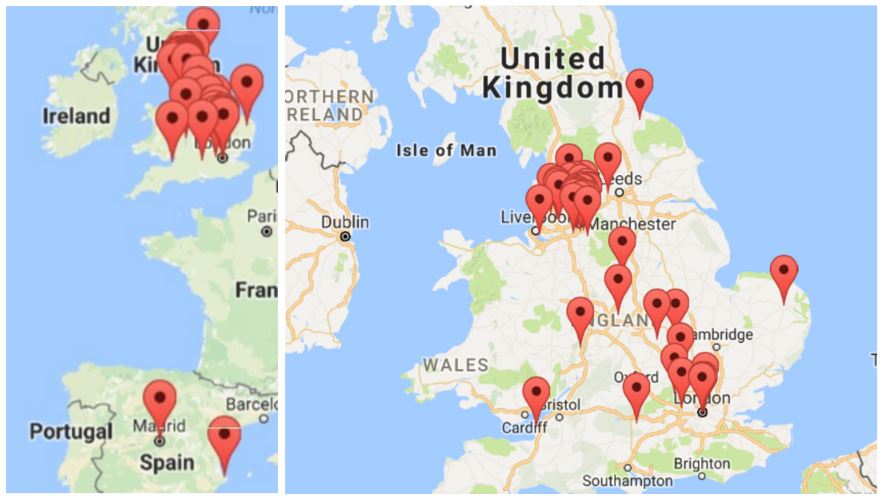
90.08% identified themselves as members of the public, 7.27% of participants identified themselves as subject matter experts and 13.88% of participants identified as carers.
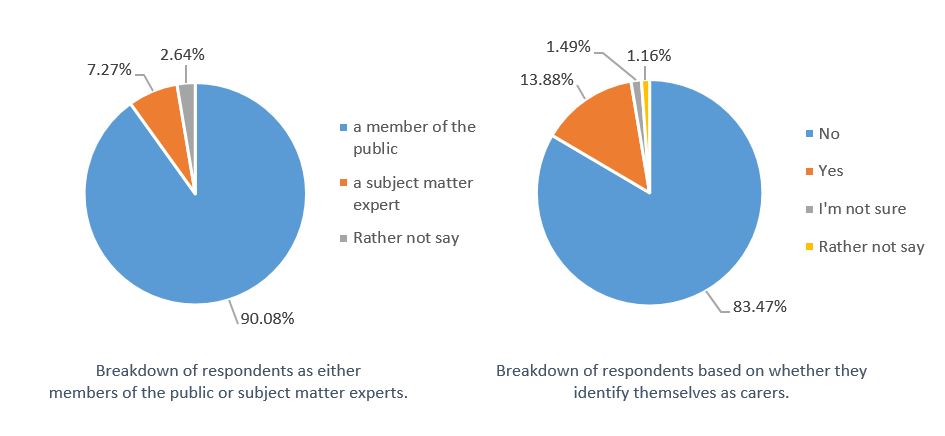
85.45% of participants identified themselves as not having a disability while 12.89% said they considered they had a disability.
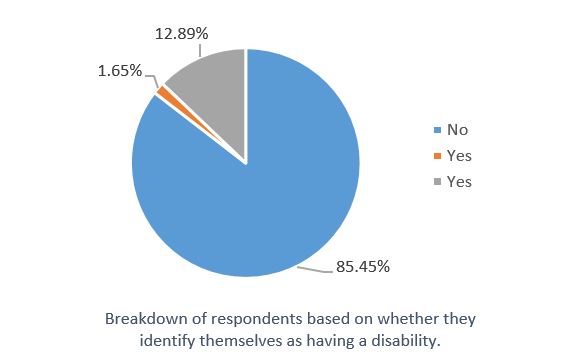
We attracted people from every age group, with more than 50% over the age of 45 and 40% below.
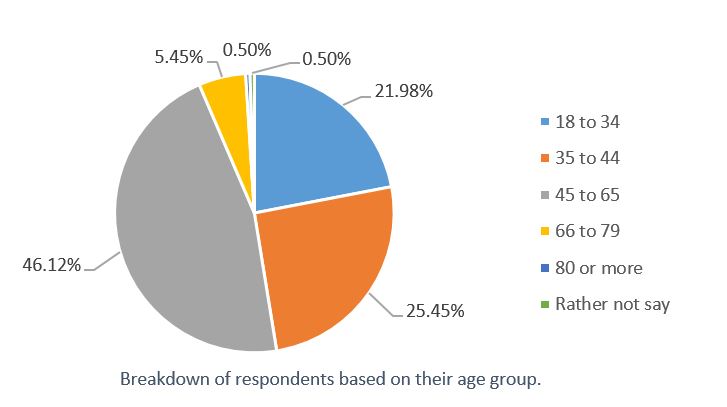
The vast majority of participants (74.21%) identified themselves as female while only 25.45% identify themselves as male. A very low percentage of people (0.17%) identified themselves as non-binary.
The majority of participants (91.24%) identified themselves as heterosexual or straight, while 3.47% identified themselves as gay or lesbian, 2.81% identified themselves as bisexual and 0.17% as transgender.
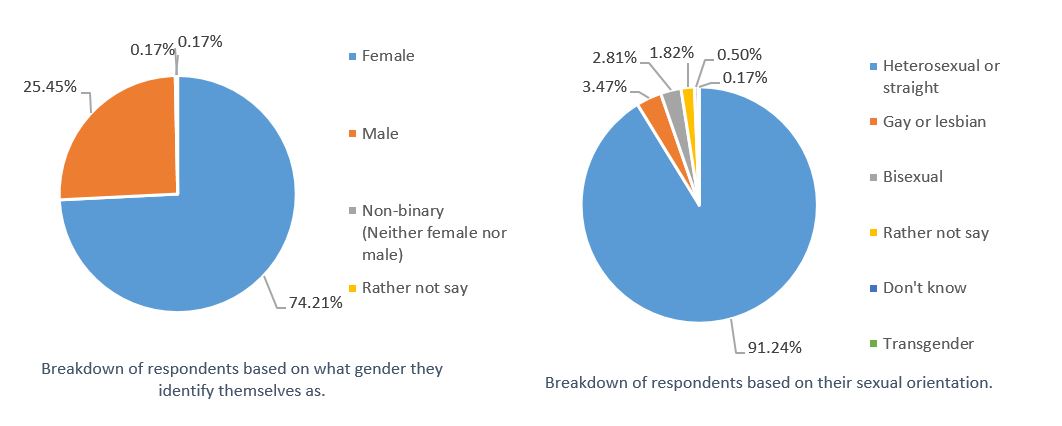
We attracted people from every region of Greater Manchester. Wigan is underrepresented, whilst Tameside/Glossop, Stockport, Rochdale, City of Manchester and Bolton are slightly overrepresented.
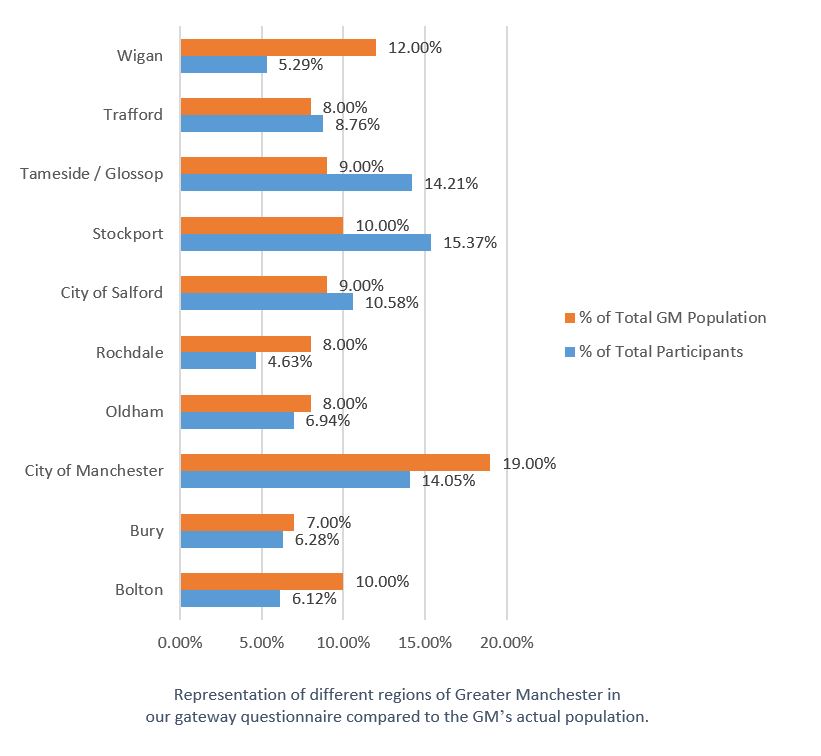
Participants from most ethnic backgrounds responded to our gateway questionnaire. It is worth noting that those self-identifying as ‘White: British’ group form the majority of participants.
| Ethnic group | % of Total Participants | % of Total GM Population |
| White: British | 85.62% | 79.84% |
| White: Other | 3.14% | 2.62% |
| Other | 2.64% | 3.28% |
| White: Irish | 2.31% | 1.29% |
| Asian British or Asian: Indian | 1.82% | 1.99% |
| Asian British or Asian: Pakistani | 1.16% | 4.85% |
| Black British or Black: African | 1.16% | 0.66% |
| Asian British or Asian: Other | 0.99% | 1.06% |
| Asian British or Asian: Chinese | 0.50% | 0.97% |
| Black British or Black: Caribbean | 0.17% | 1.67% |
| Asian British or Asian: Bangladeshi | 0.00% | 1.27% |
| Black British or Black: Other | 0.00% | 0.43% |
| White: Gypsy or Irish Traveller | 0.00% | 0.06% |
| Rather not say | 0.50% | – |
The majority of our participants (79.34%) are employed and around 11% aren’t working due to disability, ill health or being retired.
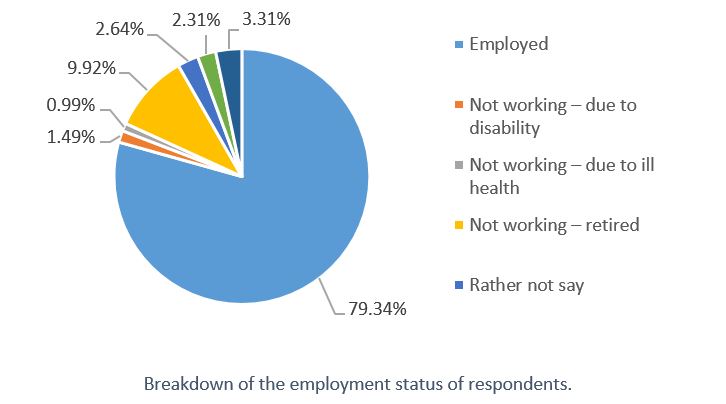
Finally, 87.11% of participants confirmed they can be contacted for Devolution Manchester’s future workshops.